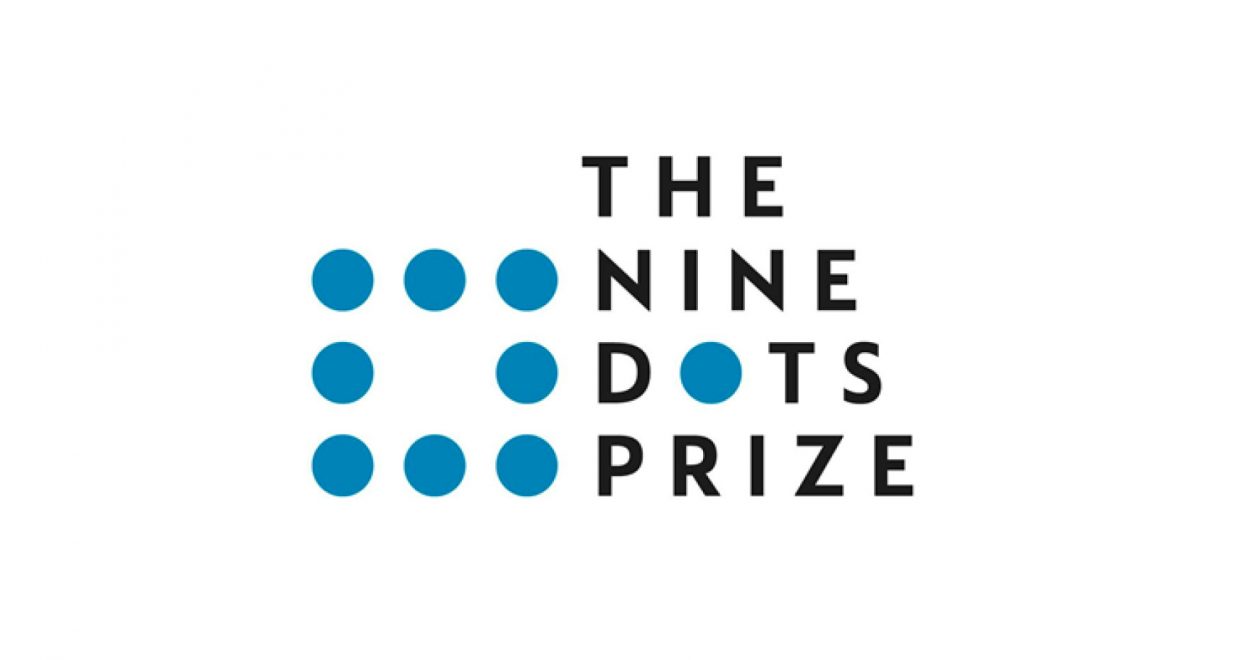New Nine Dots Prize – recognising the value of Open Access to those outside of the academy
Last week saw the launch of a new Prize – the Nine Dots Prize, the aim of which is to encourage creative thinking that tackles contemporary social issues. It is sponsored by the Kadas Prize Foundation and supported by Cambridge University Press and CRASSH at the University of Cambridge.
Applicants are asked to respond in 3,000 words to a set question: the inaugural one being “Are digital technologies making politics impossible?”. A new question will be set each Prize cycle but as they will all focus on issues that affect society, the Prize’s heartland is in the social sciences. But responses from all fields, disciplines, sectors and sets of experience are welcome.
The Prize will be judged by our Board made up of 12 internationally renowned scholars, thinkers and writers. The Board members will use the summary response to judge the Prize, and only the winner will be invited to go on and write up a short book that will then be published by Cambridge University Press. And the winner will have the Prize award of $100,000 to take time out to complete a thoughtful and accessible book in nine months. The winner will also have the option of a term’s visiting fellowship with CRASSH at the University of Cambridge to help the writing process.
The Prize will be judged anonymously, so whoever wins the Prize knows they have done so not because of their past work or current institution, but because of the strength of their ideas and their ability to communicate them effectively.
So let’s look again at the aim of the Prize, the first part is to encourage creative and innovative thinking. To do that, we have set a question that we think might trigger interesting responses, which can be answered in a number of ways and from a number of perspectives. Those who submit are encouraged to focus on what the question means to them and to respond to that. The Prize then provide a financial award to support the winner in taking time out to craft a book from their initial summary response to the question. And support will also come from Cambridge University Press and CRASSH in helping the winner to fully develop their thinking as they complete the book.
The second part of the aim – tackling contemporary social issues – needs something more. In order for ideas to have a chance of changing the world, you have to tell people about them. And it was this simple fact that was behind the decision to ensure that the winner’s book, to be published by Cambridge University Press, will be available open access alongside traditional print and digital formats.
Much of the discussion about open access tends to be within academia, and looks mainly at the costs and benefits of OA to academics, universities and the academic community. Less is written about the value of open access to those outside the academy: Those who are seeking to get access to and use research ideas and evidence for the benefit of their work in government, civil society, voluntary, and business organisations. Or who wish to use research as they are interested in a particular issue and want to contribute to public debate, or are just generally interested in what researchers are doing with public funds.
But as an applied researcher myself, working with policymakers, civil society organisations, and Parliamentarians, it is this aspect of open access that I see as just as important. Academics are regularly dismayed to hear that those working in the civil service do not read academic work even in very relevant fields. This is partly due to time pressures, and the impenetrable nature of some academic writing, but mostly as they do not have access to it as the civil service have very few subscriptions to journals. The situation is even more acute in voluntary and civil society organisations, where the appetite for academic work is strong but the access outside open access outlets is even more limited.
It is for this reason that it was decided to ensure the Prize winner’s book was open access. It will be freely accessible online as soon as it is published (in May 2018). We hope that this will normalise the use of open access, much in the same way as mandates from research councils for grant holders, and HEFCE for the next REF process, have sought to bring significant change to how academics publish their work.
By keeping in mind those outside universities who might want to read and use research when publishing, we should also recognise that the way that academics write – or are asked to write to comply with conventions – is not accessible even to those who have a keen interest in the areas in which we are writing. We have therefore included a stipulation in the judging criteria for the Prize that the winner will not just have the best ideas in their response, the way they write must also be more open. We state that entries must be original, important and of excellent quality, but also that they should be rigorous whilst being accessible for their intended audience. And their intended audience is not just academics or journalists, but all those who are interested in discussing the ideas contained within and all those who might be able to do something with them.






